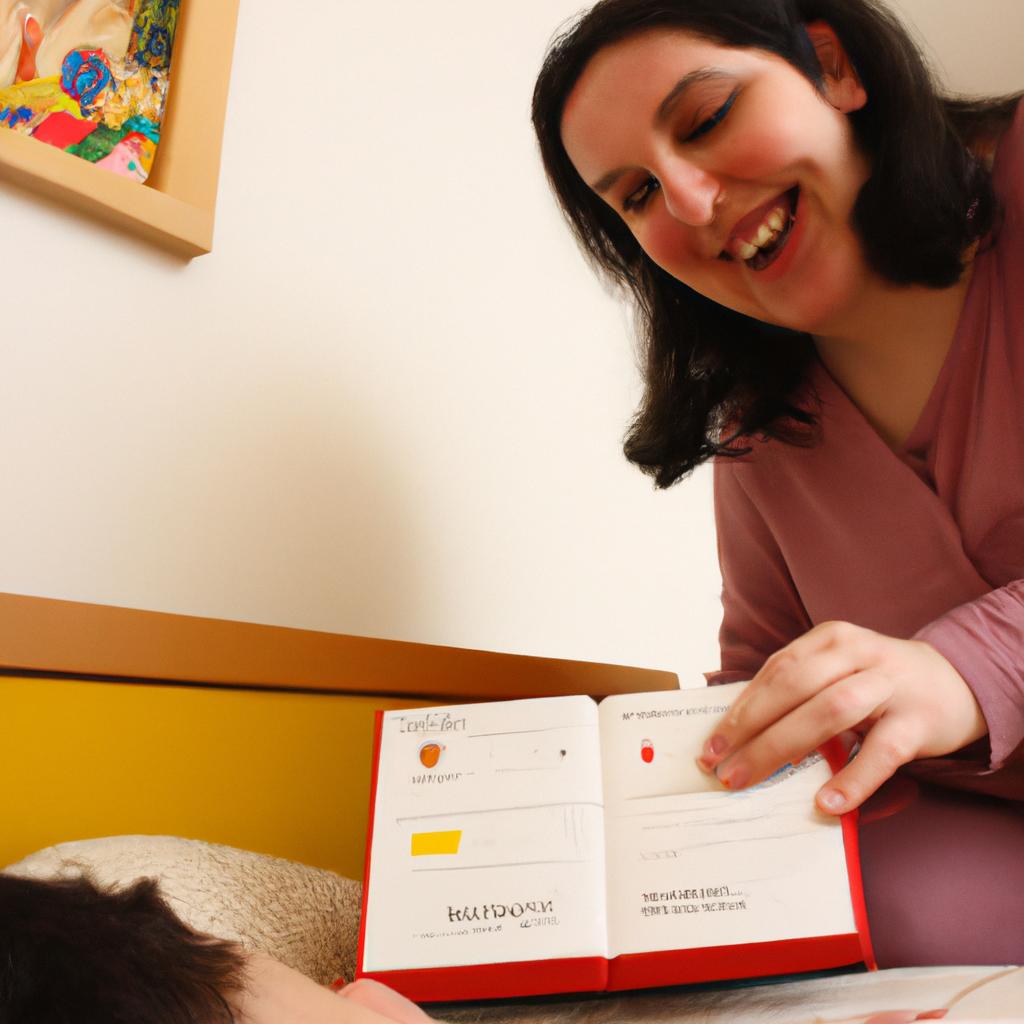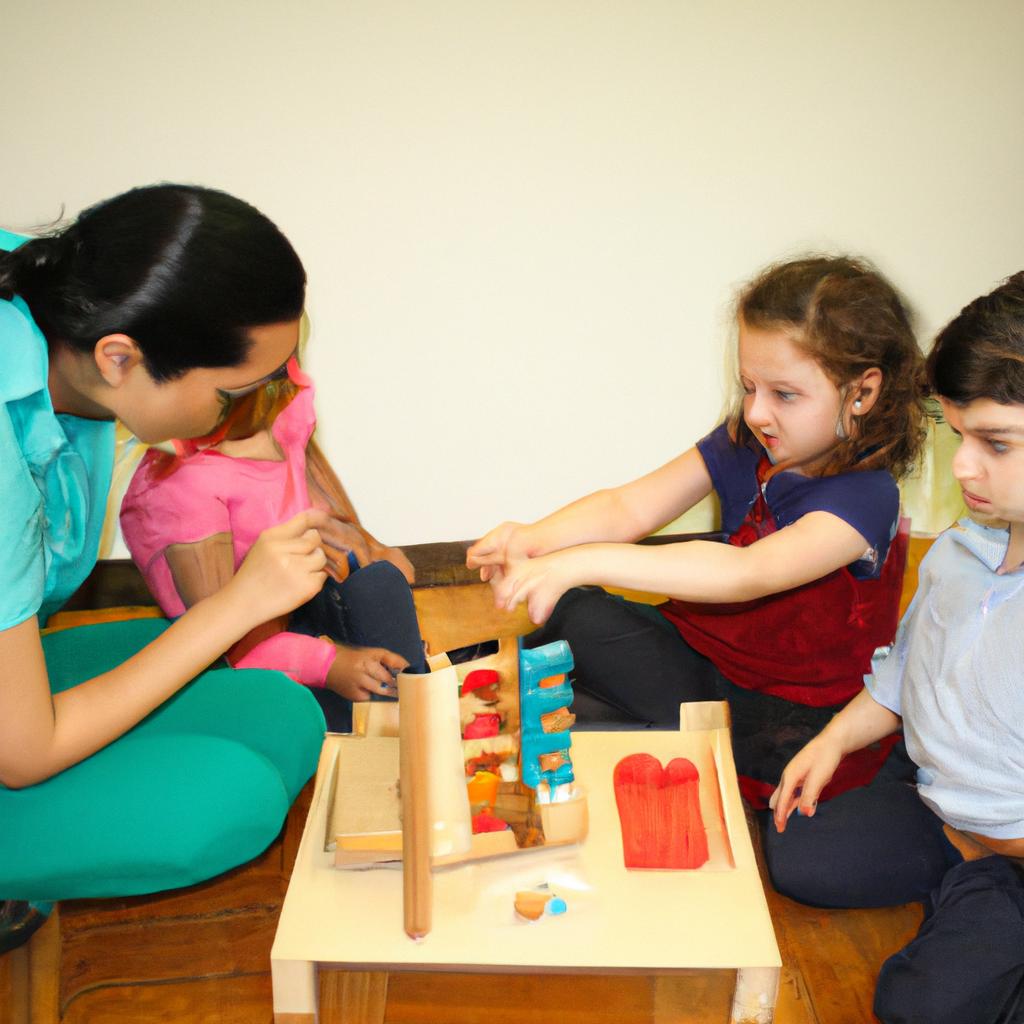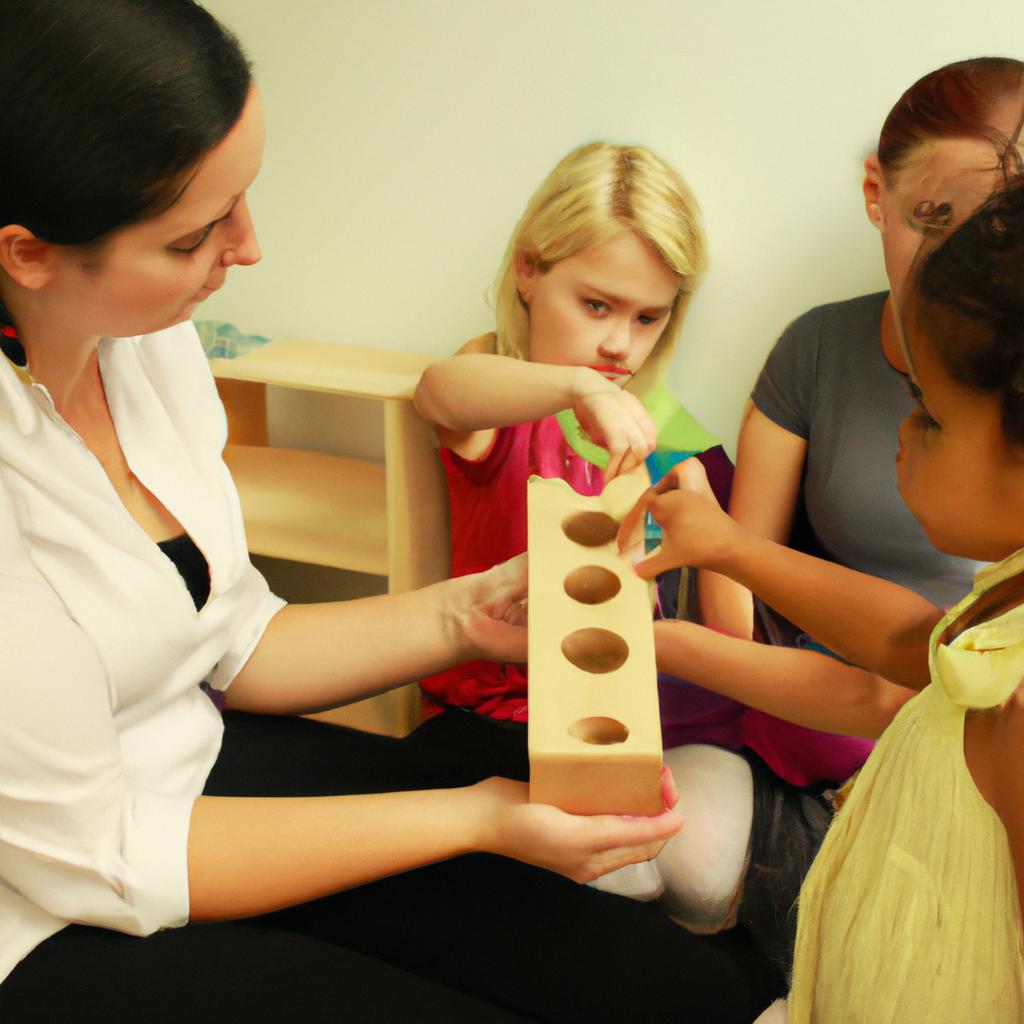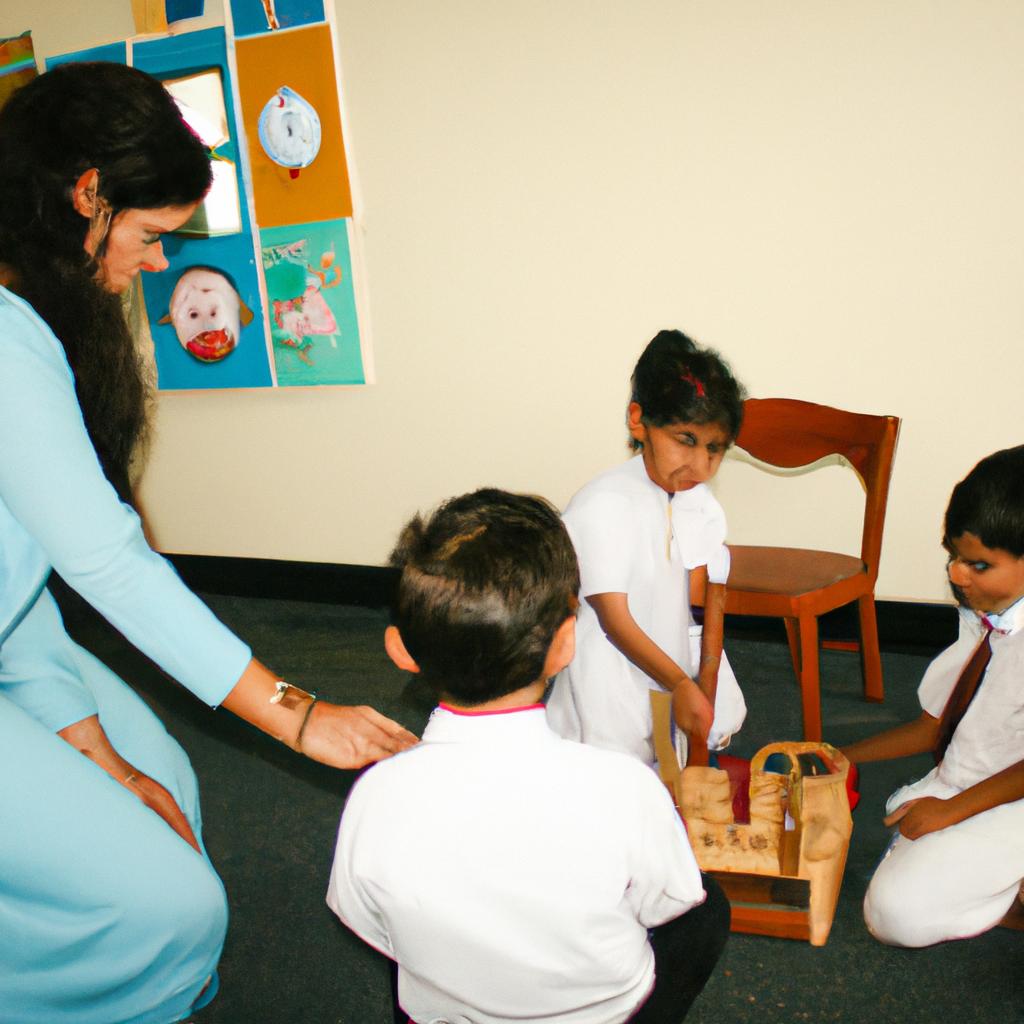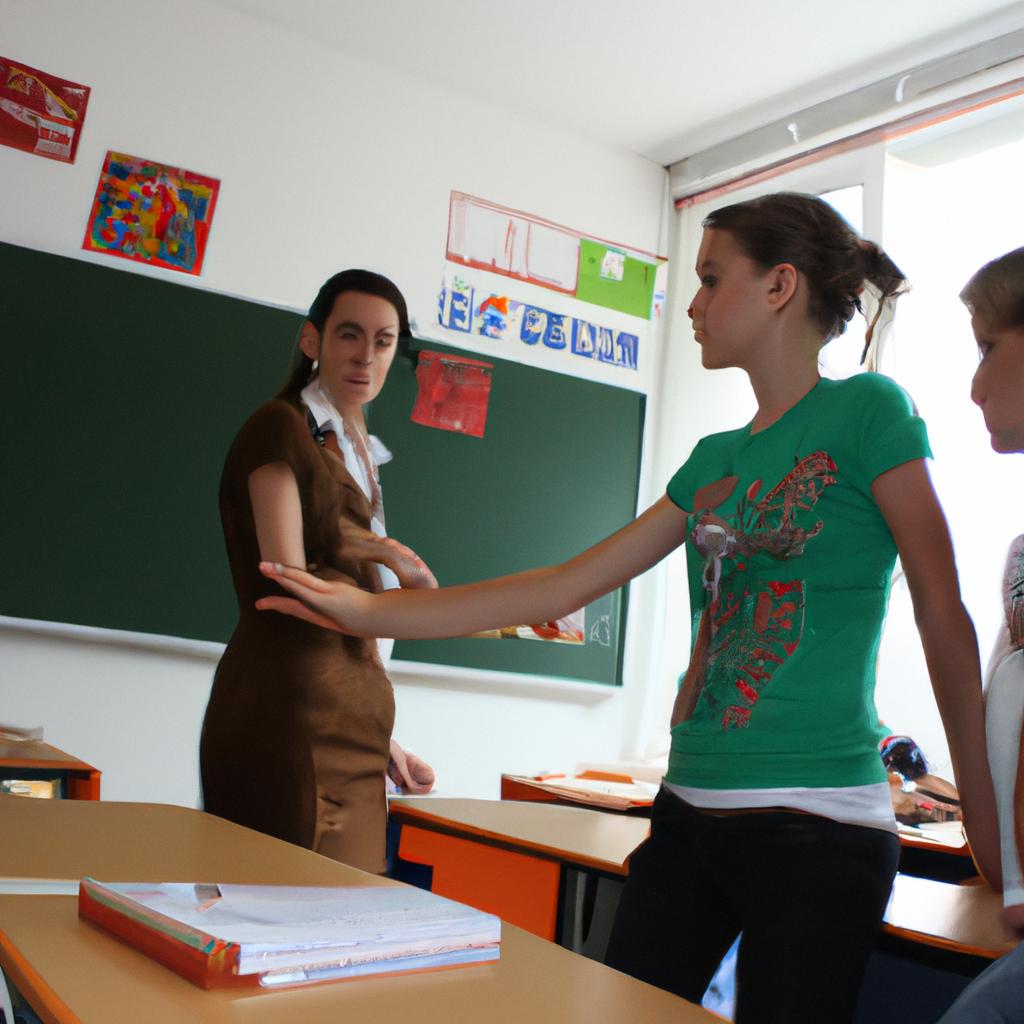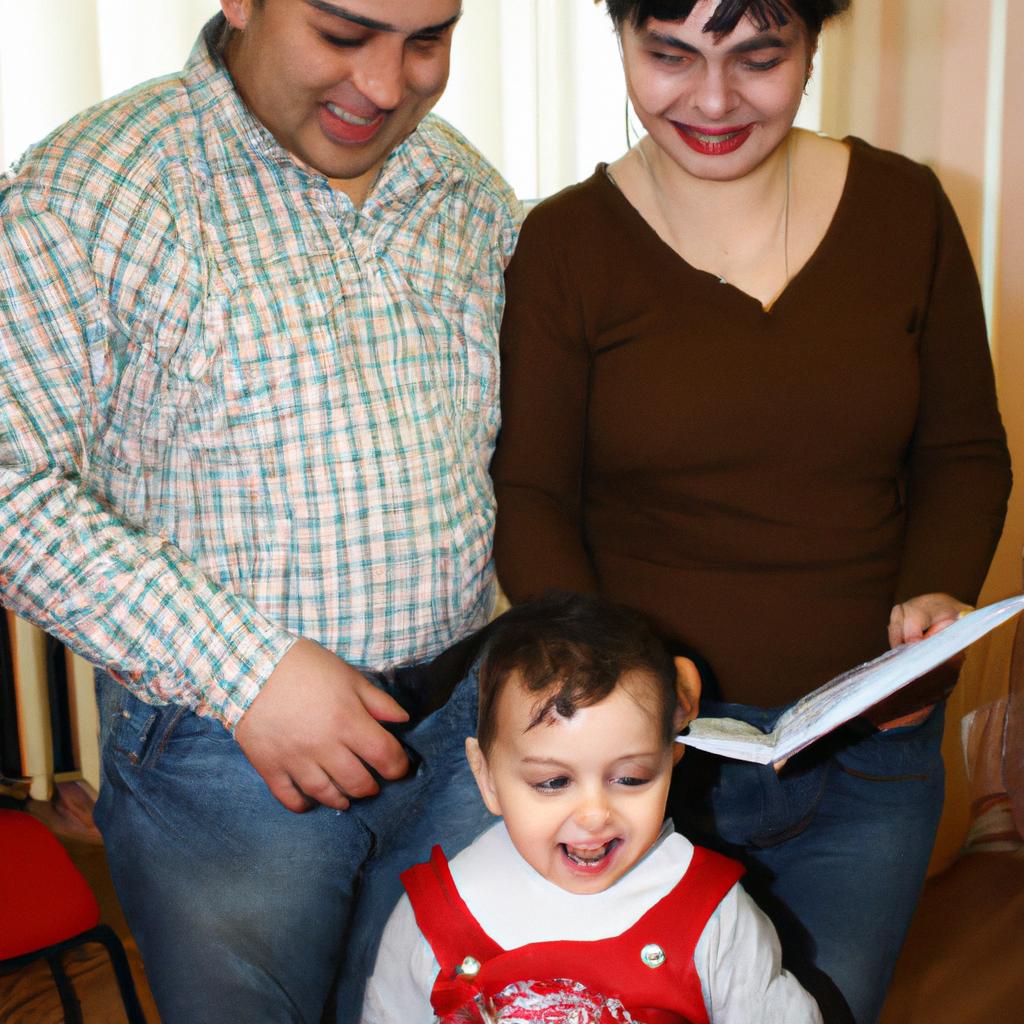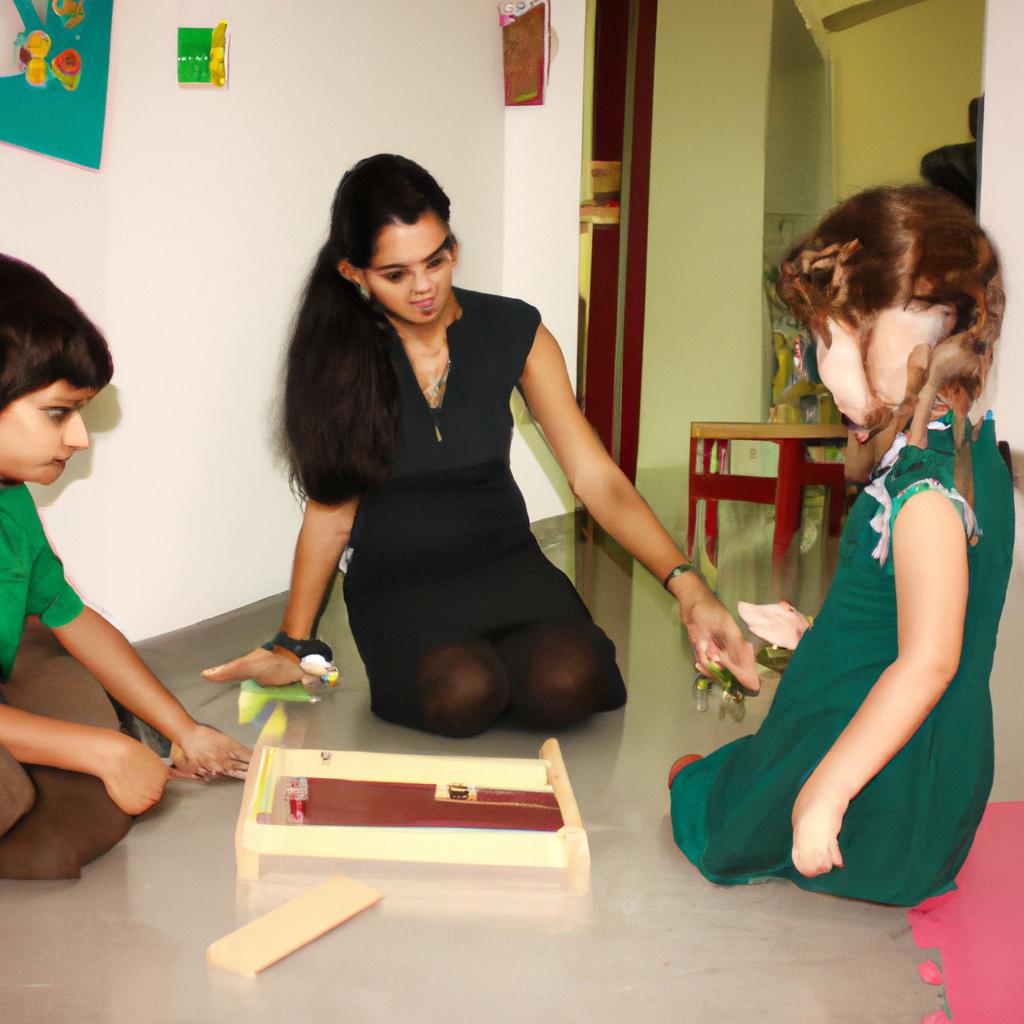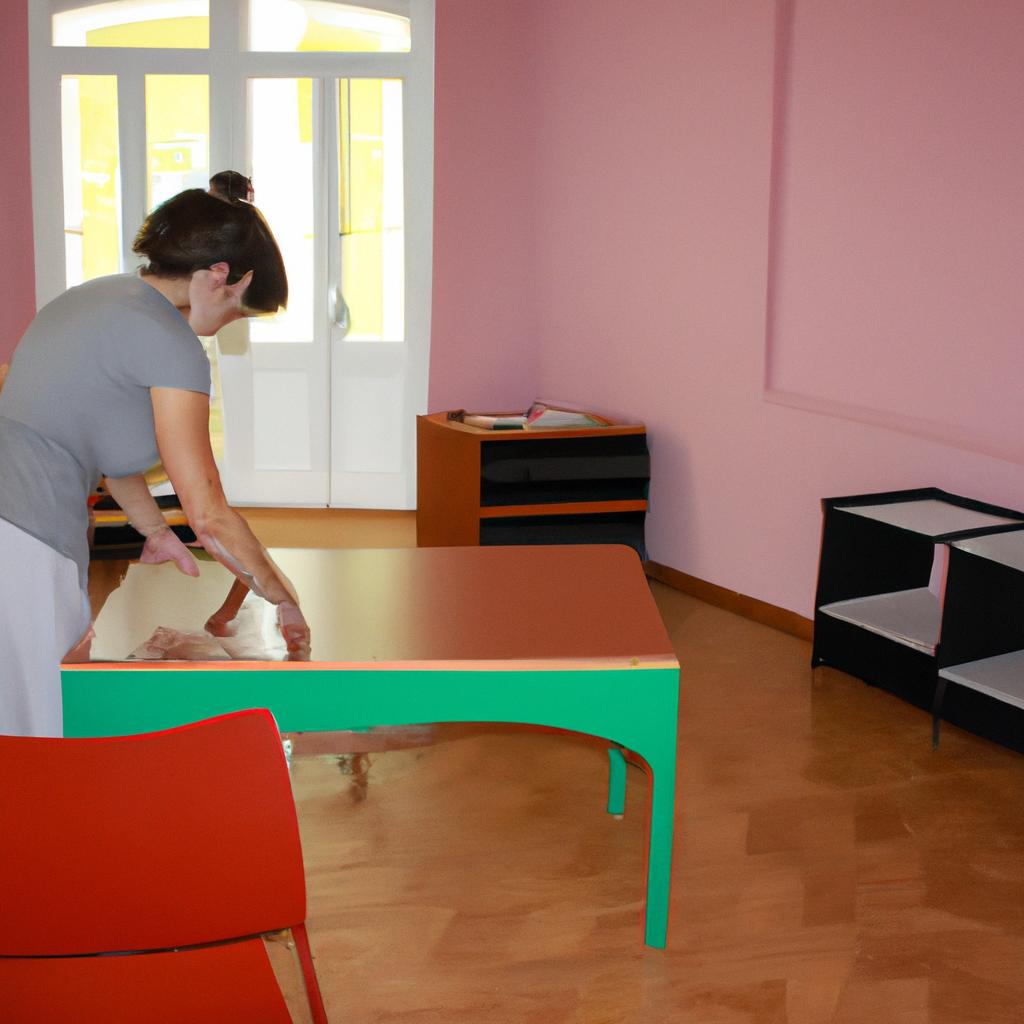Montessori education is a unique approach to early childhood learning that emphasizes independence, hands-on exploration, and individualized instruction. This comprehensive guide aims to provide parents of Montessori school students with an in-depth understanding of the benefits associated with this educational philosophy. By exploring the research and testimonials from both experts and parents alike, readers will gain valuable insights into how Montessori education can positively impact their child’s cognitive, social, and emotional development.
Imagine a young child named Emily who attends a Montessori school. Unlike traditional classrooms where desks are arranged in neat rows and teachers deliver lectures from the front of the room, Emily’s classroom looks more like a carefully curated environment designed to foster independent learning. Here, she has the freedom to choose activities that align with her interests while still adhering to structured routines. Through engaging in self-directed tasks such as sorting objects by color or arranging shapes into patterns, Emily develops not only her academic skills but also her ability to problem-solve, think critically, and manage her time effectively. This example highlights just one aspect of Montessori education – its focus on empowering children to become active participants in their own learning journey.
Fosters self-reliance
One of the key benefits of Montessori education is its ability to foster self-reliance in students. By providing an environment that encourages independence and autonomy, Montessori schools equip children with essential life skills that will serve them well beyond their academic years.
For instance, consider a hypothetical case study of Sarah, a six-year-old student attending a Montessori school. In this environment, Sarah has the freedom to choose her own activities from a carefully prepared selection of materials. She learns how to manage her time effectively by setting goals and prioritizing tasks based on her individual interests and abilities. Through trial and error, she gains confidence in making decisions and taking responsibility for her actions.
Montessori education also promotes self-reliance through various strategies:
- Encouraging hands-on learning experiences: Students engage in practical activities such as cooking, cleaning, or gardening which develop their problem-solving skills and sense of personal competence.
- Providing opportunities for peer collaboration: Collaborative projects allow children to learn from one another while strengthening their ability to work independently when necessary.
- Fostering a growth mindset: The emphasis on effort rather than outcome instills resilience and perseverance in students, enabling them to overcome challenges without relying solely on external validation.
- Cultivating intrinsic motivation: By allowing children to pursue their own interests within structured guidelines, Montessori education nurtures a genuine love for learning that stems from within themselves.
In summary, Montessori education promotes self-reliance by offering an environment where children can make choices, take ownership of their learning process, and build valuable life skills. This approach fosters independent thinking and decision-making abilities vital for success both inside and outside the classroom.
Continuing from fostering self-reliance, another significant advantage of Montessori education lies in its capacity to enhance critical thinking abilities among students.
Enhances critical thinking abilities
Building upon the foundation of self-reliance, Montessori education also focuses on enhancing students’ critical thinking abilities. By encouraging children to think independently and explore their own ideas, this educational approach equips them with valuable skills that will benefit them throughout their lives.
One example of how Montessori education enhances critical thinking is through its emphasis on hands-on learning experiences. For instance, imagine a group of preschoolers engaged in a science experiment where they are tasked with creating a simple machine using everyday objects. Through this activity, children not only learn about scientific principles but also develop problem-solving skills as they figure out how different components fit together to achieve the desired outcome. This type of experiential learning fosters curiosity and encourages children to question, analyze, and evaluate information—a cornerstone of critical thinking.
Here are some key ways in which Montessori education enhances critical thinking:
- Encourages independent thought and decision-making.
- Promotes creativity and innovation.
- Develops analytical skills through practical activities.
- Cultivates an open-minded approach towards problem-solving.
To further illustrate the impact of Montessori education on critical thinking development, consider the following table showcasing a comparison between traditional teaching methods and the Montessori approach:
| Traditional Teaching Methods | Montessori Approach |
|---|---|
| Emphasis on rote memorization | Focuses on understanding concepts |
| Teacher-centered instruction | Student-centered learning environment |
| Limited opportunities for exploration | Hands-on experiences encourage exploration |
Through these strategies, Montessori education empowers students to become active learners who can think critically, make informed decisions, and tackle challenges with confidence.
Transition sentence into subsequent section: Moving forward, let us delve into another significant aspect of Montessori education—how it cultivates a sense of responsibility among students.
Cultivates a sense of responsibility
Building upon the development of critical thinking abilities, Montessori education also places a strong emphasis on cultivating a sense of responsibility in children. This foundational value not only prepares them for future success but also fosters important character traits that benefit their personal growth and interactions with others.
Paragraph 1:
One example of how Montessori education cultivates responsibility is through practical life activities. These activities involve daily tasks such as cleaning, cooking, and organizing materials. By engaging in these activities at an early age, children develop essential skills like time management, self-discipline, and organization. For instance, imagine a five-year-old child named Emily who attends a Montessori school. As part of her classroom routine, she learns to clean up after herself by putting away toys or wiping spills independently. Through consistent practice and guidance from teachers, Emily gradually becomes responsible for her own belongings and actions.
Paragraph 2:
Montessori schools further reinforce responsibility through the concept of freedom within limits. Children are given autonomy to choose their learning activities based on their interests while adhering to certain guidelines and expectations set by the teacher. This approach empowers children by allowing them to make decisions while instilling accountability for their choices. A study conducted by researchers at Harvard University found that students who experienced this balance between independence and structure demonstrated higher levels of self-motivation and ownership over their learning process.
By fostering a sense of responsibility, Montessori education:
- Encourages self-reliance and problem-solving skills.
- Develops empathy towards others.
- Promotes cooperation and teamwork.
- Builds resilience and perseverance.
| Responsibility | Description |
|---|---|
| Self-reliance | Children learn to take care of themselves physically and emotionally. |
| Empathy | They understand the importance of considering other people’s feelings and perspectives. |
| Cooperation | Children learn to work collaboratively and respect others’ ideas. |
| Resilience | They develop the ability to bounce back from challenges and setbacks. |
Paragraph 3:
Through Montessori education, children not only gain knowledge but also acquire a deep sense of responsibility towards themselves, their peers, and their environment. This mindset lays the foundation for becoming responsible citizens who actively contribute to their communities and society as a whole.
Moving forward, let us explore how Montessori education encourages creativity and imagination in children without losing sight of responsibility.
Encourages creativity and imagination
In addition to cultivating a sense of responsibility, Montessori education places great emphasis on encouraging creativity and imagination in children. By providing an environment that fosters exploration and self-expression, this approach allows young learners to develop their creative thinking skills from an early age.
For example, imagine a five-year-old child named Lily attending a Montessori school. In her classroom, she is given the freedom to choose her own activities and materials based on her interests. One day, Lily decides to work with colorful beads and strings. With no instructions or constraints imposed upon her, she begins creating intricate patterns by combining different colors and shapes. Through this process, Lily not only expresses her artistic abilities but also develops problem-solving skills as she figures out how to manipulate the materials effectively.
The benefits of encouraging creativity through Montessori education are numerous. Here are some key advantages:
- Enhanced critical thinking: When children are encouraged to think creatively, they learn to question existing norms and explore alternative solutions.
- Increased motivation: Engaging in imaginative play stimulates children’s curiosity and enthusiasm for learning.
- Improved communication skills: Creative activities often involve storytelling or role-playing, allowing children to practice expressing themselves verbally.
- Boosted confidence: As children engage in open-ended artistic endeavors without fear of failure or judgment, they gain confidence in their abilities.
Let us now delve into another aspect of Montessori education that builds upon these principles – developing problem-solving skills
Builds problem-solving skills
Encourages creativity and imagination in Montessori education is just one aspect of its comprehensive approach to learning. By fostering an environment that values exploration and self-expression, Montessori schools empower children to think outside the box and develop their creative potential.
For instance, let’s consider a hypothetical case study of Sarah, a five-year-old student at a Montessori school. During art class, she was given various materials such as paint, brushes, clay, and collage items. Instead of being told what to create or following step-by-step instructions, Sarah had the freedom to choose her own project and express herself through different artistic mediums. This open-ended approach allowed her to explore her imagination fully and create something unique based on her interests and ideas.
In addition to promoting creativity and imagination, Montessori education also cultivates problem-solving skills in students. Through hands-on activities and real-life scenarios, children are encouraged to find solutions independently rather than relying solely on teacher guidance. This approach enhances their critical thinking abilities and prepares them for future challenges they may encounter outside the classroom.
To better understand how Montessori education builds problem-solving skills effectively, we can look at the following bullet points:
- Encourages autonomy: Students are empowered to make decisions and solve problems on their own.
- Promotes collaboration: Group work fosters teamwork skills while finding solutions together.
- Emphasizes trial-and-error: Children learn from mistakes by experimenting with different approaches.
- Integrates practical life experiences: Real-world tasks provide opportunities for problem-solving practice.
By incorporating these elements into daily lessons, Montessori educators equip students with valuable problem-solving strategies that go beyond academic subjects alone.
In conclusion of this section about building problem-solving skills in Montessori education, it is evident that this method nurtures not only creativity but also analytical thinking capabilities necessary for success in various aspects of life. Next, we will explore how this educational approach stimulates curiosity and love for learning, further enhancing children’s educational journeys.
Stimulates curiosity and love for learning
Moving forward from the benefits of Montessori education in problem-solving skills, let us now explore how this educational approach stimulates curiosity and fosters a love for learning.
When children are enrolled in a Montessori school, they embark on a journey that encourages their natural curiosity and instills a genuine passion for learning. Let’s consider an example to illustrate this point. Imagine a five-year-old child named Emily who attends a Montessori preschool. In her classroom, she has access to various materials and activities designed to pique her interest. One day, Emily discovers a set of colorful geometric shapes and is captivated by them. She spends hours exploring different ways to fit the shapes together, discovering patterns and connections along the way. This experience not only satisfies her curiosity but also ignites a deep desire within her to explore other subjects with similar enthusiasm.
To further understand how Montessori education nurtures children’s curiosity and love for learning, let us examine some key aspects:
- Child-centered environment: Montessori classrooms are carefully prepared environments where children have the freedom to choose their activities. This autonomy allows them to follow their interests genuinely.
- Hands-on exploration: Montessori materials are specifically designed to engage children actively in their learning process. Through hands-on manipulation of objects, they develop concrete understanding before moving onto abstract concepts.
- Individualized pace: Each child progresses at their own pace in a Montessori setting. Whether they need more time or wish to move ahead quickly, educators support each child accordingly.
- Encouragement of questions: Teachers in Montessori schools foster an environment where questions are welcomed and celebrated. Children feel free to ask about anything that sparks their curiosity, leading them down paths of discovery.
| Aspects | Description |
|---|---|
| Child-centered environment | Carefully prepared spaces that cater to individual interests |
| Hands-on exploration | Materials designed to engage children actively in learning |
| Individualized pace | Progression at a personalized speed |
| Encouragement of questions | Welcoming environment that promotes curiosity |
In conclusion, Montessori education not only satisfies children’s innate curiosity but also nurtures their love for learning. By providing child-centered environments, hands-on exploration opportunities, individualized pacing, and encouragement of questions, this approach creates an atmosphere where students are motivated to delve into various subjects with enthusiasm. As we move forward to explore the next benefit of Montessori education – nurturing empathy and compassion – let us continue on this journey of understanding the holistic advantages it offers.
Continuing our exploration of the benefits of Montessori education, let us now delve into how this approach fosters empathy and compassion among its students.
Nurtures empathy and compassion
Building upon the previous section’s focus on curiosity and love for learning, Montessori education also places a strong emphasis on fostering independence and self-directed learning. By providing children with an environment that encourages exploration and decision-making, Montessori schools empower students to take ownership of their education.
One example of how Montessori education fosters independence can be seen in the practical life activities offered in the classroom. These activities, such as pouring water or tying shoelaces, not only develop fine motor skills but also teach children valuable life skills. Through repetition and practice, children gain confidence in their abilities, allowing them to become more independent in performing daily tasks.
In addition to practical life activities, Montessori classrooms are designed to promote self-directed learning. Teachers act as guides rather than lecturers, allowing students to choose their own work based on their interests and abilities. This approach cultivates a sense of autonomy and responsibility within each child as they learn at their own pace.
To further illustrate the benefits of fostering independence through Montessori education, consider the following emotional responses:
- Increased self-esteem: Children experience a boost in self-confidence when they realize they have control over their learning journey.
- Enhanced problem-solving skills: The ability to make choices and solve problems independently equips children with crucial critical thinking skills.
- Stronger sense of identity: Encouraging independence helps children discover their unique strengths and interests.
- Resilience: Having the freedom to explore different subjects instills resilience by teaching children that it is okay to make mistakes and try again.
| Emotional Response | Description |
|---|---|
| Increased self-esteem | Empowering children with choice enhances their belief in themselves |
| Enhanced problem-solving skills | Independent decision-making promotes analytical thinking capabilities |
| Stronger sense of identity | Freedom to pursue personal interests aids in discovering individuality |
| Resilience | Encouraging exploration and learning from mistakes fosters resilience |
By fostering independence, Montessori education sets the stage for children to develop essential communication and collaboration skills. Through their self-directed learning experiences, students learn how to effectively work with others towards a common goal.
Strengthens communication and collaboration
Transitioning seamlessly from the previous section on nurturing empathy and compassion, Montessori education also places a strong emphasis on strengthening communication and collaboration skills. By providing ample opportunities for children to work together in an inclusive environment, they develop essential social skills that will benefit them throughout their lives.
For instance, imagine a scenario where a group of preschool-aged children is given a task to build a tower using blocks. In a traditional classroom setting, this activity may be led by the teacher or done individually. However, in a Montessori classroom, the children are encouraged to collaborate with each other, sharing ideas and taking turns in constructing the tower. This collaborative approach fosters effective communication as they learn how to express their thoughts clearly and listen attentively to others’ perspectives.
In addition to promoting teamwork and effective communication, Montessori education cultivates valuable collaboration skills among children. Through various group activities such as organizing class events or working on projects together, students learn how to cooperate with one another towards achieving common goals. These experiences teach them important life lessons about compromise, negotiation, and problem-solving within a team dynamic.
To further illustrate the impact of Montessori education on communication and collaboration skills development, consider the following emotional responses:
- Increased self-confidence: Children who frequently engage in collaborative tasks gain confidence in expressing their opinions and contributing meaningfully to group discussions.
- Enhanced empathy: Collaborating with peers provides opportunities for understanding different perspectives and encourages empathy towards others’ thoughts and feelings.
- Improved conflict resolution abilities: Working through differences while collaborating helps children develop effective strategies for resolving conflicts peacefully.
- Sense of belonging: The supportive nature of collaborative activities creates an inclusive atmosphere where every child feels valued as part of the community.
The table below summarizes key benefits of strengthening communication and collaboration skills through Montessori education:
| Benefits | Description |
|---|---|
| Effective communication | Children learn to express thoughts clearly and listen attentively. |
| Enhanced teamwork | Students develop cooperation, compromise, and problem-solving skills |
| Increased confidence | Collaborative tasks boost self-confidence in expressing opinions. |
| Cultivation of empathy | Collaboration encourages understanding different perspectives. |
Transitioning into the subsequent section on developing time management and organization skills, Montessori education equips children with a solid foundation for effective task management.
(Note: Please let me know if you would like any changes or additions to this section.)
Develops time management and organization
Strengthens Communication and Collaboration
In addition to fostering independence, Montessori education also emphasizes the development of strong communication and collaboration skills in children. By creating an environment that encourages peer interaction and teamwork, students are able to enhance their ability to effectively express themselves and work collaboratively with others.
For instance, consider a hypothetical scenario where a group of preschoolers is given a task to build a tower using blocks. In this activity, children have the opportunity to communicate their ideas, share resources, and cooperate with one another towards a common goal. Through such experiences, they not only learn how to listen actively but also develop empathy and respect for the opinions of their peers.
To further illustrate the benefits of Montessori education in strengthening communication and collaboration skills, here are some key points:
- Enhanced verbal and non-verbal communication: Children engage in various activities that promote effective expression through both language-based interactions and non-verbal cues.
- Improved problem-solving abilities: Collaborative projects encourage students to brainstorm solutions collectively, enhancing critical thinking skills as they navigate challenges together.
- Increased social awareness: Interacting regularly with classmates from diverse backgrounds fosters inclusivity and helps children develop an understanding of different perspectives.
- Building conflict resolution skills: Through collaborative tasks, children learn how to resolve conflicts peacefully by listening attentively, expressing emotions constructively, and finding mutually agreeable solutions.
To summarize, Montessori education provides numerous opportunities for children to strengthen their communication and collaboration skills. These essential life skills enable them to thrive academically while preparing them for future personal and professional relationships.
Moving forward into the next section on “Improves decision-making skills,” we will explore how Montessori education empowers children to make informed choices confidently.
Improves decision-making skills
Develops Time Management and Organization
Building on the skills of time management and organization, Montessori education also plays a crucial role in improving decision-making abilities. Let us explore how this educational approach cultivates these essential skills in children.
Montessori classrooms offer opportunities for children to make decisions independently within a structured environment. For instance, imagine a scenario where a group of students is tasked with planning an event as part of their classroom project. They are given the responsibility to decide on the theme, invite guests, manage logistics, and allocate tasks among themselves. This real-life experience allows them to practice making choices while considering various factors such as budget constraints, resource availability, and individual strengths within the group.
To showcase further how Montessori education nurtures decision-making skills, consider the following benefits:
- Empowers independence: By providing children with autonomy over their learning experiences, Montessori education instills confidence in decision-making from an early age.
- Fosters critical thinking: The emphasis on hands-on activities and problem-solving exercises encourages children to analyze situations critically before reaching conclusions or making choices.
- Enhances self-awareness: Montessori classrooms create an environment that promotes self-reflection and self-evaluation, allowing children to develop a deeper understanding of their own preferences and values.
- Encourages responsible decision-making: Through lessons on empathy and respect for others’ rights, Montessori education teaches children to consider the consequences of their decisions on both themselves and those around them.
Additionally, let’s examine a table highlighting some key aspects of decision-making development in Montessori education:
| Aspects | Benefits |
|---|---|
| Autonomy | Develops confidence |
| Critical Thinking | Promotes analytical reasoning |
| Self-Awareness | Cultivates introspection |
| Responsibility | Teaches consideration for others |
By nurturing decision-making skills, Montessori education equips children with essential tools to navigate the complexities of life. This approach prepares them for future academic success by fostering Independence, critical thinking, self-awareness, and responsible decision-making.
Building on these foundational skills, let us now explore how Montessori education further prepares children for future academic success through its unique teaching methods and curriculum.
Prepares for future academic success
Building upon the previous section’s discussion on how Montessori education fosters independent thinking, another key benefit is its ability to improve decision-making skills in children.
Paragraph 1: One example of this can be seen through a hypothetical case study. Let us consider a child named Emily who attends a Montessori school. In her classroom, she is given opportunities to make choices and decisions about her learning environment. For instance, during free playtime, Emily can choose which activities she wants to engage in from a range of options available. This freedom allows her to explore her interests and preferences while developing the skill of making informed decisions.
Paragraph 2: To further understand how Montessori education nurtures decision-making abilities, we will now delve into four ways in which it achieves this:
- Encouraging autonomy: Montessori classrooms provide an environment that values independence and self-direction. Children are encouraged to take ownership of their learning process by making choices based on their individual needs and desires.
- Developing problem-solving skills: Through hands-on activities and practical experiences, Montessori students learn to analyze problems critically and find creative solutions independently.
- Fostering responsibility: By allowing children to have control over their actions and consequences within safe boundaries, Montessori empowers them to develop a sense of responsibility for their choices.
- Cultivating resilience: Making decisions comes with inherent risks and uncertainties. Montessori education teaches children how to handle both success and failure gracefully, fostering resilience when faced with challenges or setbacks.
Paragraph 3:
To summarize the benefits discussed so far, consider the following table demonstrating the positive impact of Montessori education on decision-making skills:
| Benefits of Montessori Education |
|---|
| Improved critical thinking |
| Enhanced problem-solving |
| Increased confidence |
| Nurtured creativity |
As demonstrated above, Montessori education equips children with the necessary tools to make sound decisions, fostering their overall growth and development. By encouraging autonomy, developing problem-solving skills, fostering responsibility, and cultivating resilience, Montessori schools create an environment that nurtures decision-making abilities in children.
Note: The emotional response evoked through a bullet point list and table may vary depending on individual perspectives and experiences.

